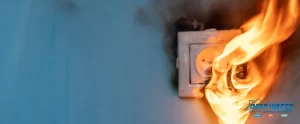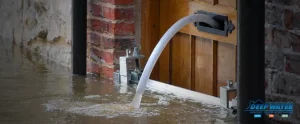A sewage or sewer backup refers to a condition where wastewater is unable to move freely through the sewer system because of a blockage or an obstruction. This can cause flooding in your neighborhood, although this is just one problem that the disaster can create.
Pipes suddenly exploding are also known to take place in a sewer backup,, making for an unpleasant sight. It’s one of the worst plumbing scenarios any homeowner could face. Thus, if you suspect that your plumbing system is showing the signs of an impending sewage backup, you should call for immediate assistance to lessen the risks.
What Causes a Sewer Backup?
A sewage system can backup due to various factors, but among the most common is spillage after a pipe burst. Other than that, poor pipe management can also lead to sewage backups.
Like other home systems, your plumbing must regularly be maintained. It captures all the debris that falls down your drains. These can eventually clog your pipes, which can lead to a sewer backup. Without proper maintenance, your plumbing system can become the stage upon which a backup can take place.
The Dangers of Sewage Backup
Regardless of the cause, a sewer backup carries several risks often affecting your health and the home. These include the following:
1. Fires
A sewer backup has the potential to set your house on fire. As water levels rise, this can reach electrical outlets, plugs, extension cords, and gas-based equipment. The contact can result in a short circuit which could spark a fire. This is especially true in the case of a basement sewage backup.
As an initial safety precaution, you should turn off your main power switch immediately. When doing so, wear rubber boots, and once the switch has been turned off, stay on a dry surface, and away from metal objects like pipes and ladders. However, if the water levels have already reached your electrical system, do not touch anything anymore as the risk of electrocution is great. Stay put, call sewage cleanup experts, and wait for them to arrive.
2. Property Damage
Damage to your home is the greatest danger that a sewer backup can bring. If sewage cleanup is not started right away, you run the risk of having a ruined property.
Performing a cleanup is challenging because contamination could be anywhere. This can be on your flooring, the home walls, and on your furnishings. Often, you may need to completely dispose of a lot of things to secure your family’s health and safety. Nevertheless, some items can still be saved, such as washable fabrics provided that these are thoroughly disinfected using chlorine bleach.
3. Health Risks
According to the National Resources Defense Council, about 2 million different diseases are detected every year following sewage contamination. This is hardly surprising given that sewage water is dirty, stagnant, and contains various viruses, bacteria, and parasites, alongside toxic substances like pesticides.
When cleaning sewer backups is not performed immediately, you can get exposed to several disease-causing bacteria. These include:
- Escherichia coli (E. coli) ““ This is commonly found in the intestines and can be harmful. E. coli can cause abdominal cramps, severe diarrhea, vomiting, and dehydration.
- Hepatitis A – This is a contagious infection that attacks the liver. Hepatitis A symptoms usually include jaundice, liver infection and liver failure, and yellowish skin.
- Salmonella ““ Like E. Coli, this also causes diarrhea and abdominal cramping.
- Leptospirosis ““ A bacterial disease that causes muscle soreness and vomiting.
- Acanthamoeba ““ A microscopic amoeba that causes infection to the eye, ear, throat, and nose.
- Heliobacter pylori ““ This bacterium is common in children and can cause peptic ulcer.
Coming into contact with these viruses can be fatal, especially if you have an unprotected and open wound. Thus, when exposed to sewage water, it’s best that you seek medical attention to lessen the risks.
What To Do After Sewage Backup
Conducting cleanup after a sewer backup is not an easy task. There are significant health risks involved. For this reason, it’s best to allow mitigation professionals to do the work for you.
Still, while waiting for help to arrive, there are a few simple things you can do. For example, if it’s accessible, turn off the main electric switch. Check if there are no breaks in the gas line and the tanks were not damaged so you don’t get exposed to sewage gas.
Food that has been exposed to contaminated water should be thrown away. including those stored in refrigerators. Food that can get spoiled quickly like milk and cheese should also be discarded.
If possible, stay away from flood waters as these often contain a host of harmful microorganisms. Raw sewage smell alone, once it enters the nose, eyes, and mouth can cause you to feel sick. Children are especially vulnerable, so they should stay away.
Key Takeaway
Sewage exposure, particularly after a backup incident, is a dangerous situation. An immediate cleanup is strongly advised. A few simple measures can be taken like turning off the main power switch. However, for the main cleanup work, especially the immediate surroundings, it’s best to allow specialists to handle them given the safety risks involved.
The dangers of sewage backup are tremendous, and if you don’t have the experience and the equipment needed to handle them efficiently, you are putting your life at risk. Seeking help from trusted water damage mitigation companies is the best option you can take.
Get expert sewage cleanup services from Deep Water Emergencies and Mitigation Services.
Sewage backups are dangerous and can affect, not only your home, but also your health. The help of professional companies like Deep Water Emergencies and Mitigation Services will ensure that these dangers are minimized.
Our team of experts that does sewage cleanup in Dallas, TX is equipped with advanced tools and the needed experience that will enable them to manage a basement sewage backup incident and get your damaged property restored to its original condition. Call us today if you need help.






